My niece proposed to go to “Fujita Museum.”
Fujita (Art) Museum has many antique oriental art objects collected by Denzaburo Fujita, who is a successful businessman and a baron in Meiji Period. The museum holds exhibitions twice a year, spring and autumn. The art objects are displayed in “Kura (warehouse or storehouse).” The exhibition rooms in the “Kura” storehouses utilize natural light in addition to artificial light, and have a cozy and calm atmosphere.
It took us a few minutes to reach Fujita Museum on foot from “Osakajo Kitazume” station on the JR Tozai line.
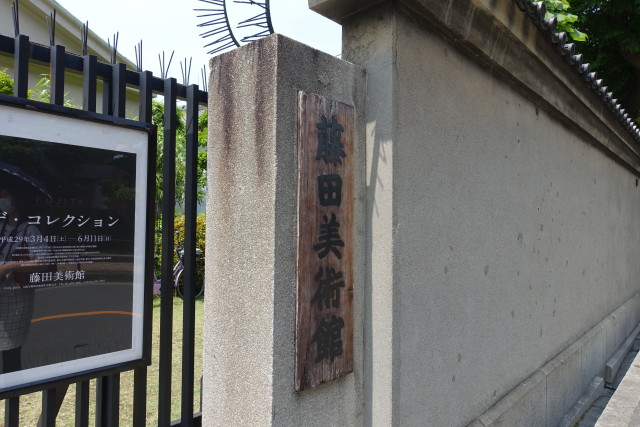
This is the front garden of the museum and the building on the left side is “Tahoto (two-storied pagoda).”
We entered the exhibition rooms from the entrance with the red roof.
The following “Kura” storehouses are the exhibition buildings.
The museum is planning to rebuild their buildings from June in this year. I worry about what will happen to the “Kura” storehouses.
There is “TAIKO-EN” across the street from the museum, in which there is a famous old Japanese-style restaurant, a wedding hall and a wedding banquet hall, a reception hall, a French restaurant, a steak house, and the like. We got discount coupons from the museum staff and went there. The following pictures are not of the temple but the Japanese-style restaurant.
TAIKO-EN has a Japanese-style garden called “Tsukiyama-shiki Kaiyuu-teien (circuit style garden),” having a pond in the center; you can walk around the pond. This garden is introduced in another page on my website.
Leaving TAIKO-EN, we went to “Kyu-Fujita Tei Ato” park, which is near the museum or TAIKO-EN. The park is in a part of a place where the Fujita residence buildings stood. The residence buildings were burned down during World War II.
This is the entrance of the park.
The park has a wide ground having artificial hills, a pond, small woods, pathways, stone stairs, and the like.
This area was very quiet and we could hear sometimes bird twitter and children’s laugh, but we can see modern skyscrapers near a station.
In the woods, there was a wood bridge leading to a next park, but unfortunately it was prohibited to pass it now.
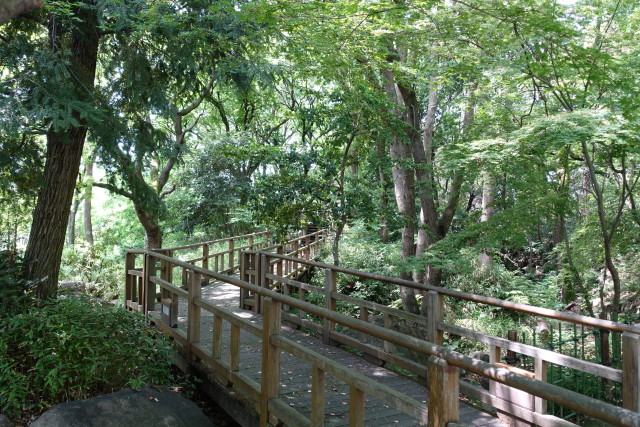
There is a Japanese-style pond with good looking rocks and a bridge.
You can see Fujita Museum (“Kura” storehouses on the left side) and TAIKO-EN (the building with rusty red roofs on the right side) from the park.
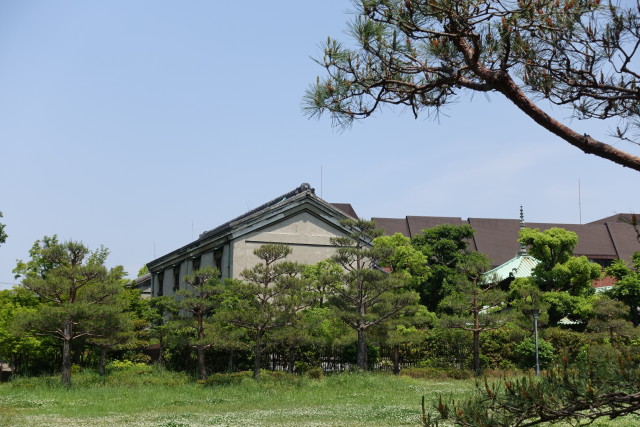
Then, we went to a restaurant to have lunch. This was once a guest house of Osaka-City, and is now run by a private business.
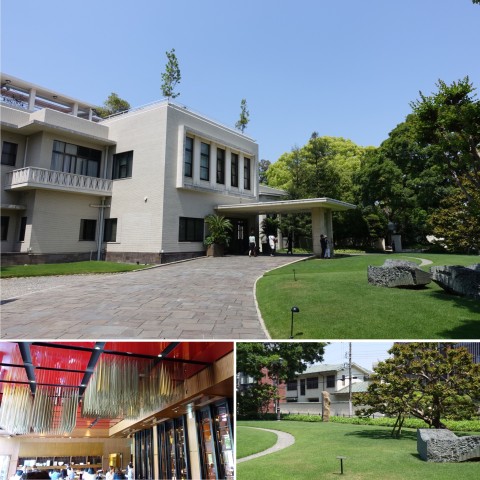
Next, we visited Osaka Castle for the first time in a long time.
We moved to “Osakajo Koen” Station on the JR loop line, and walked while we saw “Osakajo Hall.”
This is a map of the Osaka Castle. This time, we went from “Aoya-mon” gate on the north side of the castle, through “Tenshukaku (castle tower or central tower)”, and to “Sakura-mon” gate on the south side.
This is the “Aoya-mon” gate.
There was a Japanese-style houseboat colored with gold floating on the inner moat.
The stone sign says “Gokuraku-bashi (heaven bridge).”
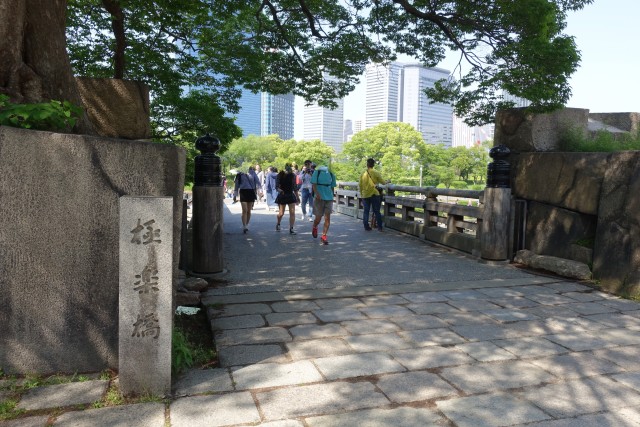
Crossing “Gokuraku-bashi” bridge, we saw stone walls made of big stones.
This is a flight of stone steps, which may have been used by samurai (Japanese warriors), though it is prohibited to use them now.
This is the “Tenshukaku” of the Osaka Castle.
This is a well before the “Tenshukaku.”
The cityscape from an observation room in the “Tenshukaku.”
How big the stone is!
This is the “Sakura-mon” gate.
Going past the “Sakura-mon” gate, we went to “Hokoku-jinja” shrine.
This is a street performance by a monkey performed in the precinct of the shrine.
The old stone walls and outer moat, and modern tower buildings.
The last view of the “Tenshukaku.”
This is “Ichiban yagura (the first turret of the castle).”
This open space is located on the south side of the castle, having a concert hall, a fountain, and the like.
We walked a lot on that day.


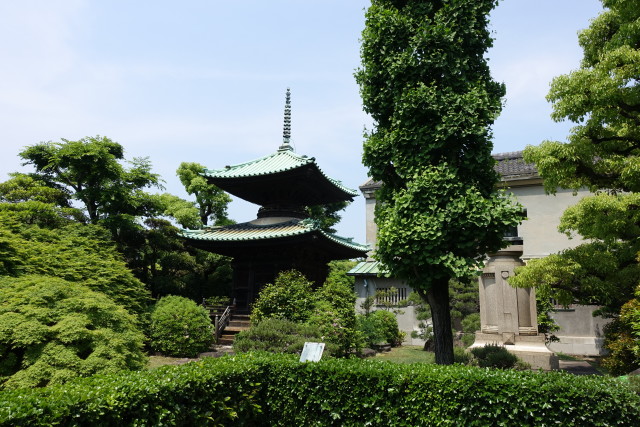
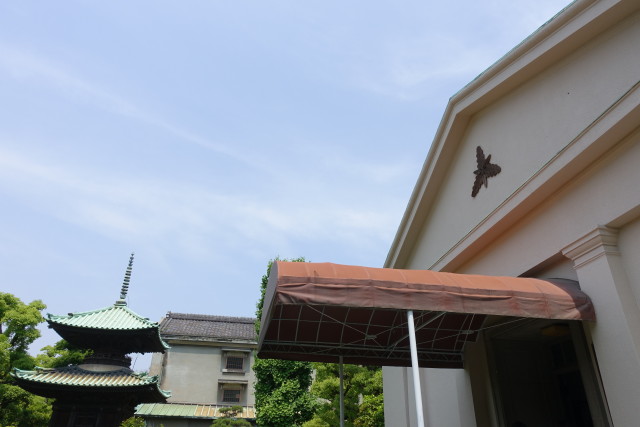
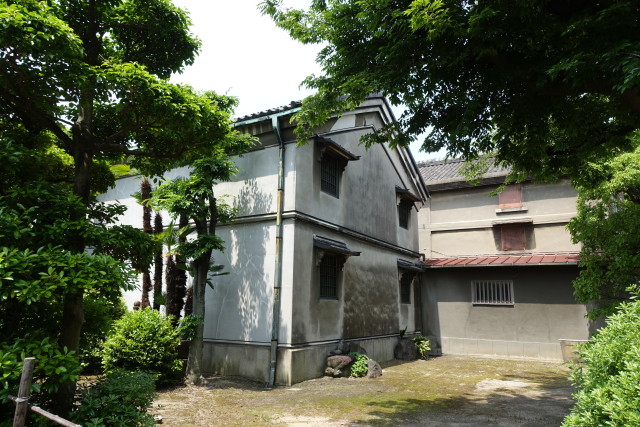
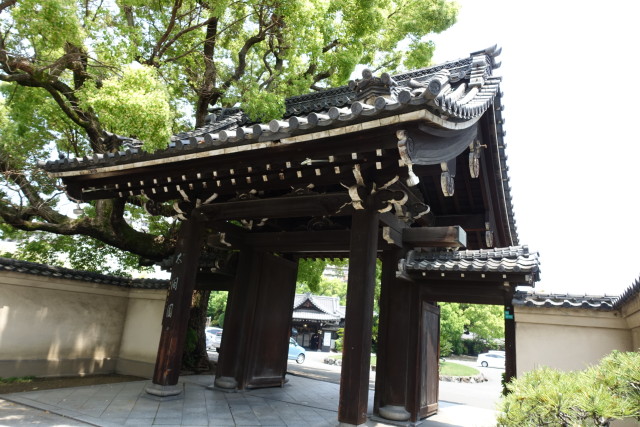
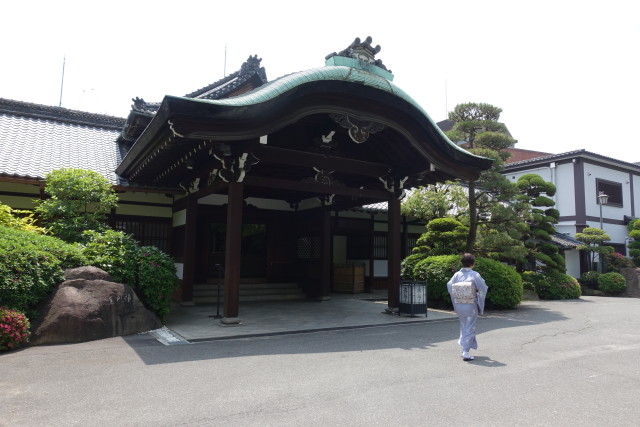
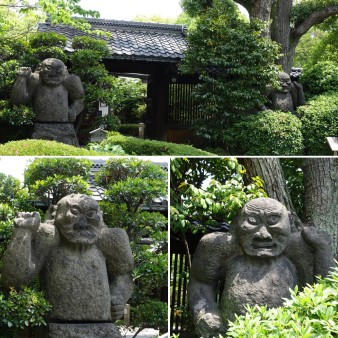
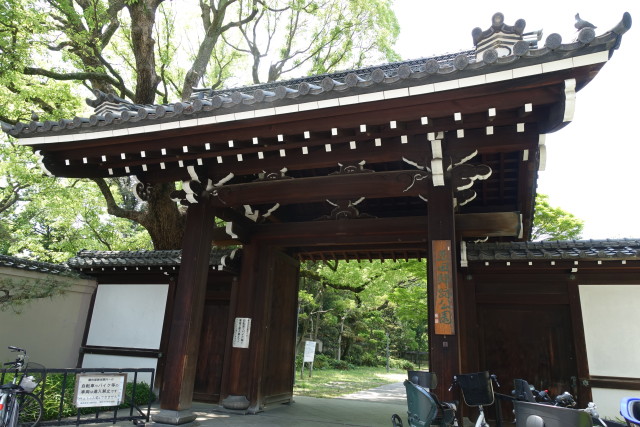
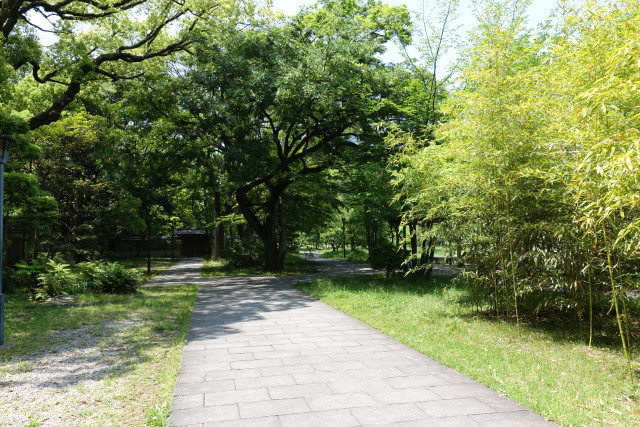
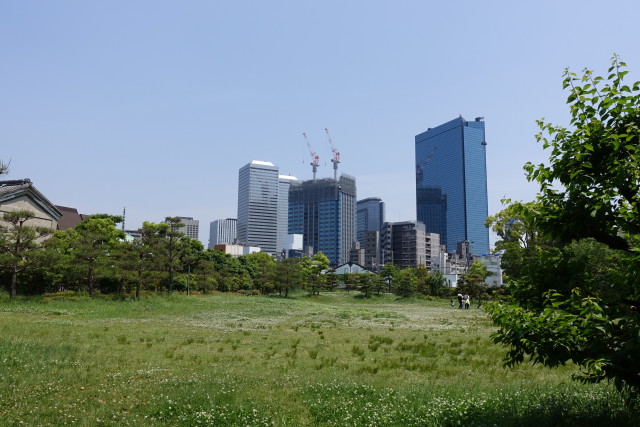
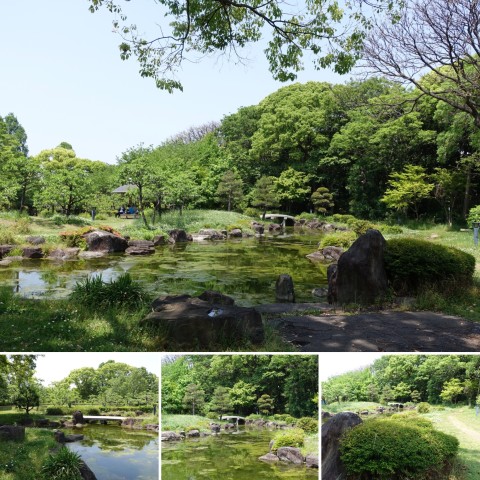
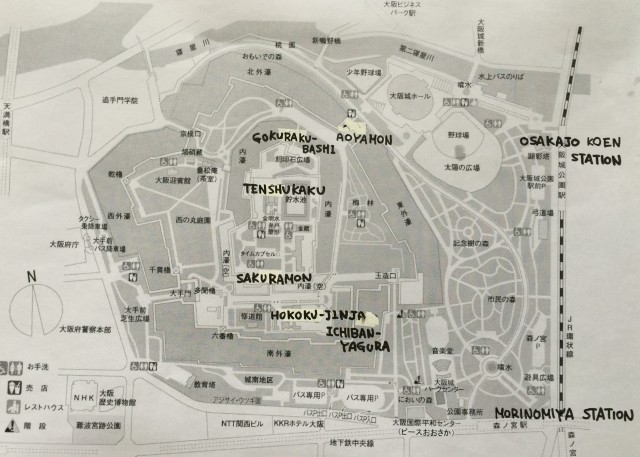
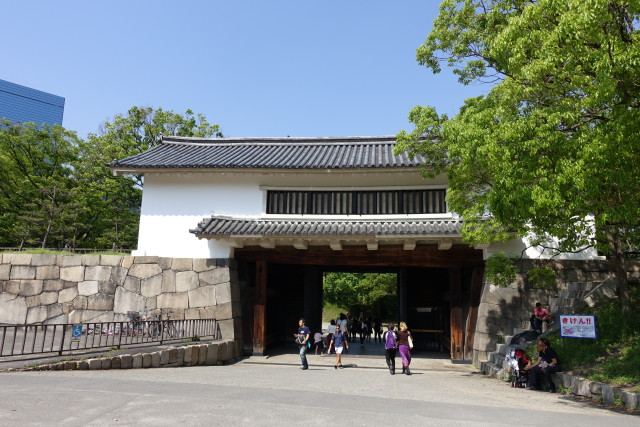
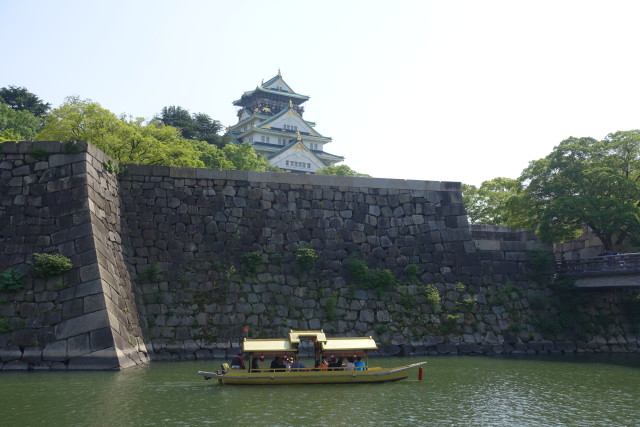
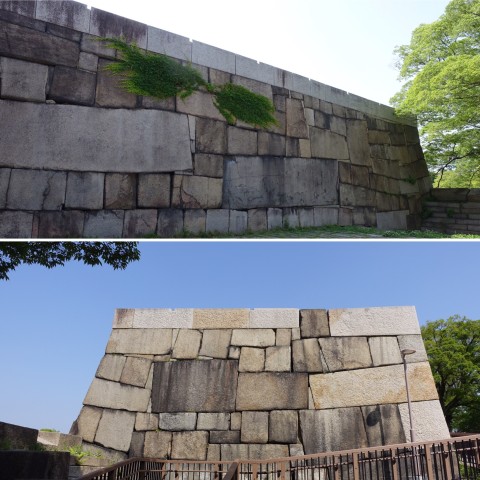
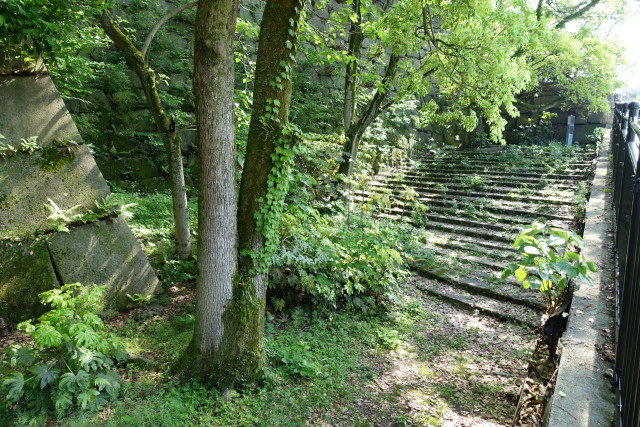
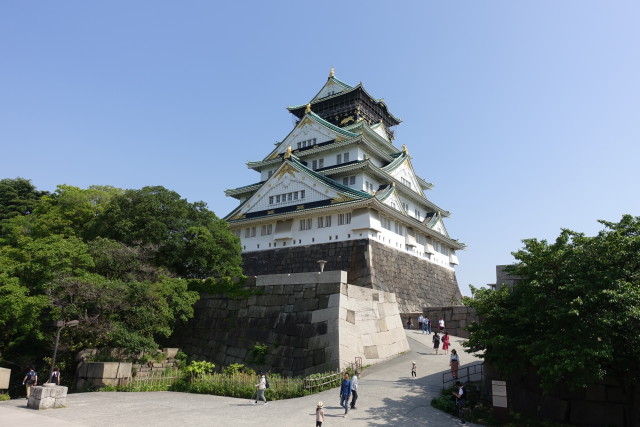
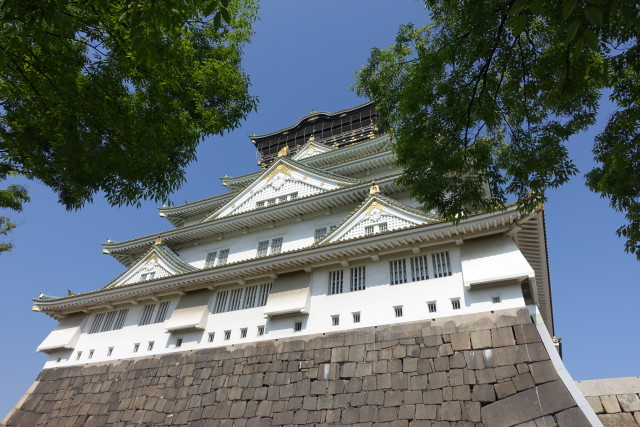
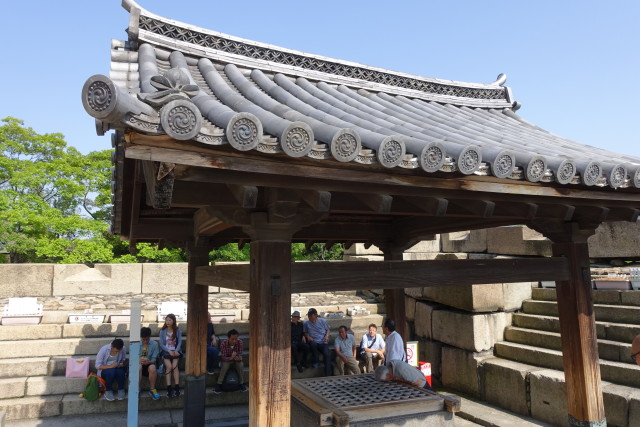
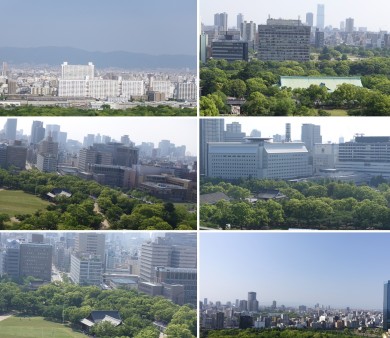
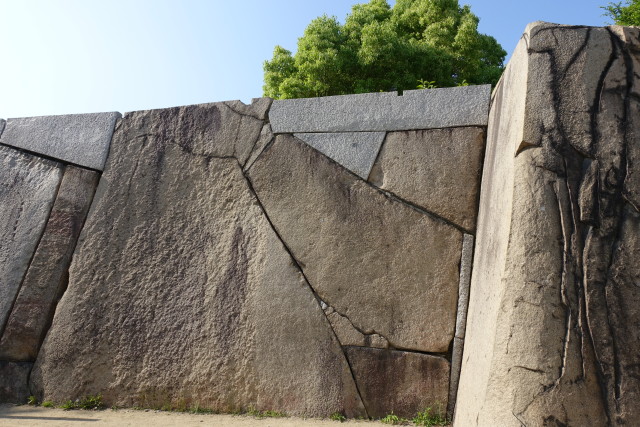
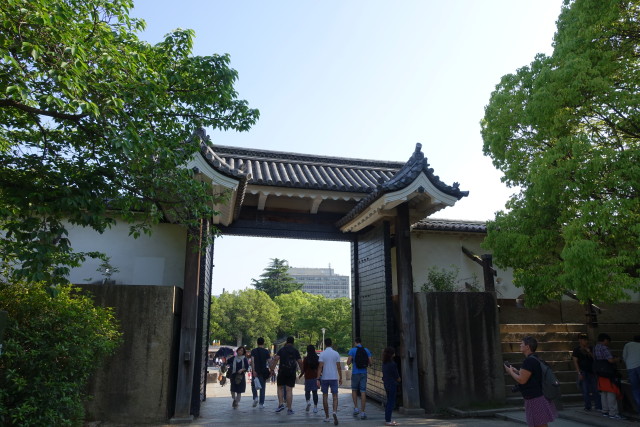
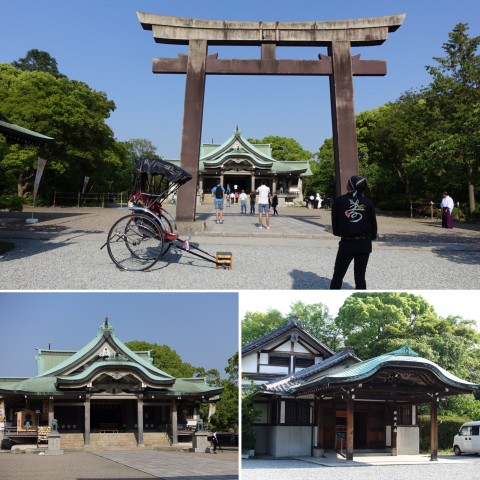
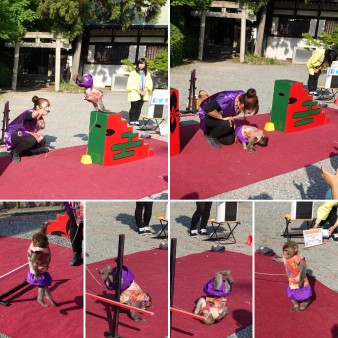
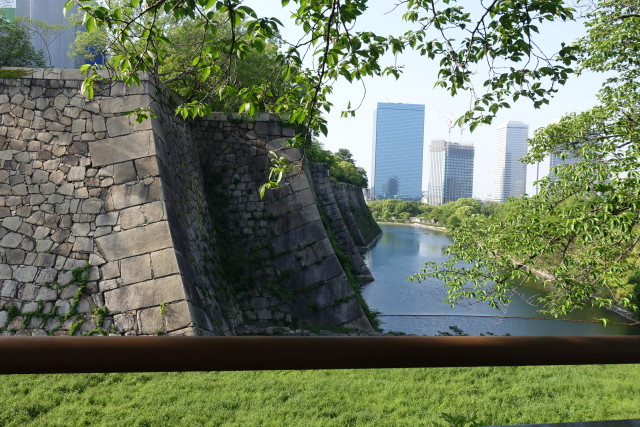
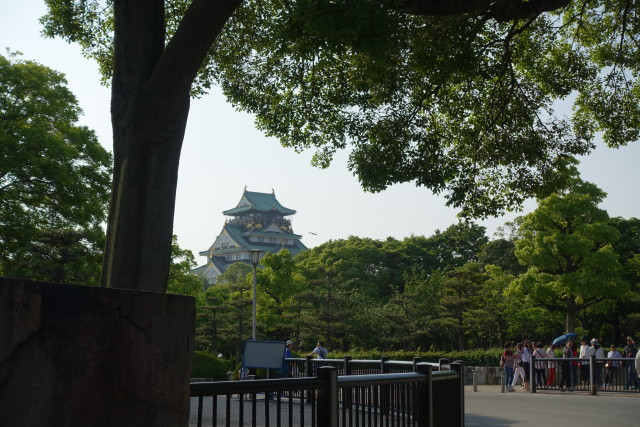
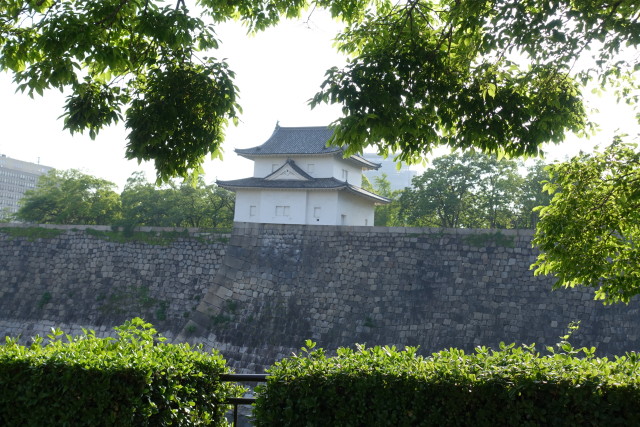
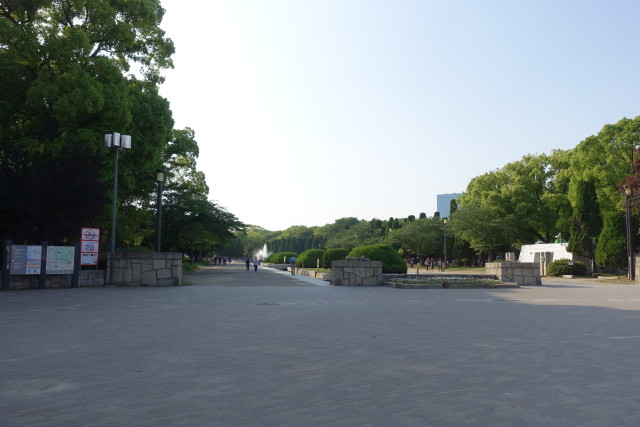
Leave a Reply